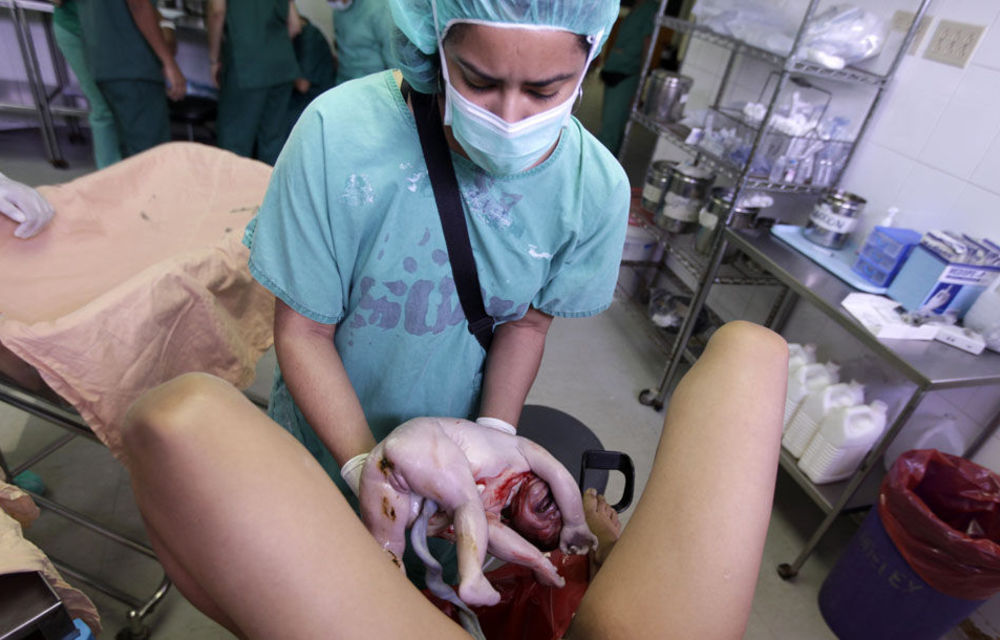The growing fad of eating one’s own placenta after giving birth has hit SA. But experts say there is no proof the practice is beneficial – or safe.
When Roxanne Freeborn from Koskstad in KwaZulu-Natal was pregnant with her first child, she was anxious about experiencing the baby blues after giving birth. “I was at a high risk of postpartum depression as I had been depressed before, so when I read that consuming your placenta can prevent it [postpartum depression], I knew I wanted to try it,” she says.
Freeborn, a 24-year-old teaching assistant, got in touch with a Durban-based company, Organic Birth, that offers placenta encapsulation services. The company processes a woman’s placenta into powder, which then gets compressed into capsules to be taken daily for the first six weeks after delivery.
“I recovered quicker after birth and didn’t experience mood swings after my pregnancy,” says Freeborn.”We were under a lot of stress when the baby wouldn’t latch [on to my breast] and I think if it were not for the capsules, I would have had a meltdown.”
Freeborn is among a growing number of women in South Africa and abroad who have taken to placentophagy, the practice of consuming one’s placenta after birth, which is commonly seen in mammals. According to placentophagy advocates, the placenta is a high source of protein and iron and can reduce stress levels post-delivery.
But gynaecology specialist at the University of Cape Town’s medical school, Mushi Matjila, warns against this growing fad.
Risky for humans
“Eating placenta is good for you if you are a mammal, but not if you are human,” says Matjila, who is currently doing molecular research on placentas. “There are all sorts of risks associated with consuming human tissue, including virus and bacteria transmission.”
Matjila says although various cultures around the world have attached different meanings to the placenta – which provides oxygen and nutrients to a foetus – he does not recommend its consumption whether cooked, raw, or as a capsule.
And it’s a trend. Viewers of the American reality TV show Tia and Tamera were granted front-row seats to see twin sisters Tia and Tamera Mowry, down Tamera’s placenta with brandy last year. January Jones from the US television series Mad Men had her placenta encapsulated, while TV personality Kim Kardashian only got as far as toying with the idea. American movie star Tom Cruise also contemplated on eating his ex-wife Katie Holmes’ placenta.
“I do realise it’s a growing trend that is largely led by celebrities despite the fact that there is no scientific or medical evidence indicating this is beneficial in any way,” says Matjila.
The science
An online search for studies about the benefits of placenta consumption resulted in a series of articles, of which the most recent is a 1991 State University of New York study conducted on mammals.
According to the article, which was published in the medical journal Neuroscience & Biobehavioral Reviews, consuming the placenta “causes an accelerated onset of maternal behaviour toward their [the mothers’] young ones”.
But no recent studies have been conducted to ascertain the effect of placenta consumption on humans. “The celebrity advocacy should start in the lab and be proven scientifically before it can be recommended to human beings,” says Matjila.
Melissa Jacobs runs Organic Birth, the company that encapsulated Freeborn’s placenta. Jacobs says women can get between 90 to 200 capsules produced from one placenta at a cost ranging between R1 400 (for the powder) and R1 800 (for the capsules).
“I am looking forward to consuming my own placenta capsules in August when I give birth to my second child,” she told Bhekisisa.
Her company started offering encapsulation services in 2011, and has since expanded to Gauteng and the Western Cape.
According to the University of Cape Town’s Matjila, dried placenta has also been used in traditional Chinese medicine, and some cultures believe it carries magical and spiritual powers.
A 46-year-old mother from Pretoria, Lanthe Norton, told Bhekisisa that she gave birth in Rizhao, Shandong province, eastern China in 2009, where nurses offered to give her her placenta. “The nurses suggested it had a lot of nutrients good for a nursing mother. I turned them down,” she says.
Thandeka Moyo was a Bhekisisa fellow.




